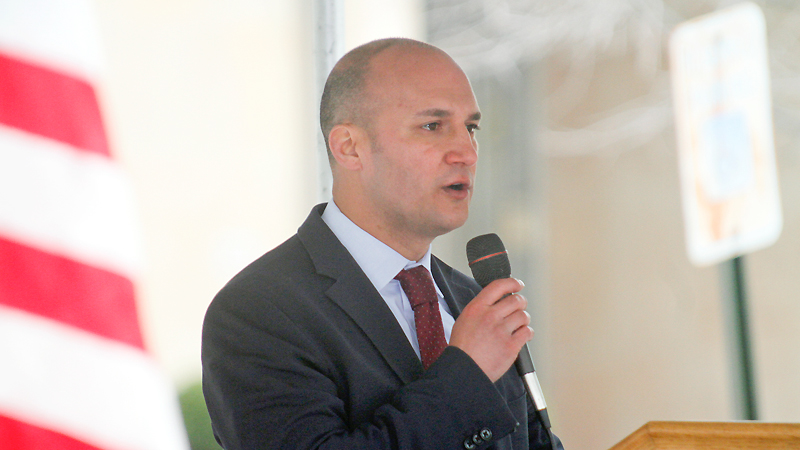Schiavoni addresses opioids, schools during Lowellville forum

LOWELLVILLE
Democratic gubernatorial candidate Joe Schiavoni met with more than 150 of his constituents Thursday just off the banks of the Mahoning River at the Mount Carmel Society Hall here.
Schiavoni was the featured speaker during the annual “RC Forum,” hosted by Ray Carlson, a local pharmacist and owner of RC Compounding and RC Outsourcing.
The event included discussions on Schiavoni’s gubernatorial race, opioids, schools and a lawsuit that Carlson filed against the Ohio Board of Pharmacy.
Schiavoni said he hoped to use 10 percent of the state’s $2 billion “Rainy Day Fund” to fight opioids and supplement educational programs aimed at school-age children concerning the dangers of opioids. He also said he chose his running mate, Stephanie Dodd, in part because she was directly impacted by the opioid epidemic when her younger sister died of an overdose in December.
Lowellville schools Superintendent Geno Thomas asked Schiavoni to clarify his position on open enrollment. Thomas was referring to a 2015 bill that Schiavoni co-sponsored that would terminate open enrollment until an investigation into its efficacy and impacts could be conducted. More than half the students in Lowellville schools live outside the district. Thomas said eliminating open enrollment would decimate his district.
“Open enrollment can be a double-edged sword because our schools aren’t funded properly,” Schiavoni said. “It results in superintendents and school districts fighting with each other over the dollars that the students bring them. It creates a tense atmosphere among the schools. It’s not something I’d bring the hammer down on immediately; it’s something we would need to revisit once we fix the school funding model.”
Schiavoni also threw his support behind Carlson’s lawsuit, which Carlson explained during the forum.
The suit asks the board to investigate whether pharmacists in major chains are adhering to federal regulations when filling prescriptions.
He believes that large chain pharmacies have intentionally pushed smaller pharmacies out of business in an attempt to control the market, but in doing so have forced their pharmacists to process far more prescriptions per day than they can while still adhering to federal and state regulations.
“These pharmacists have to be processing at least 500 prescriptions per day,” Carlson said. “How can you possibly be processing that many prescriptions while still adhering to federal regulations?”
The OBP called for the case to be dismissed, arguing Carlson doesn’t have public standing. Carlson filed a memorandum of opposition and is awaiting a court’s judgement on the matter.
 43
43
